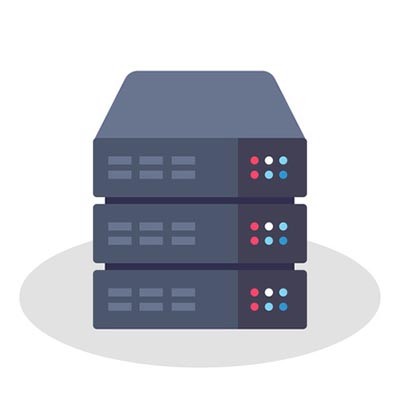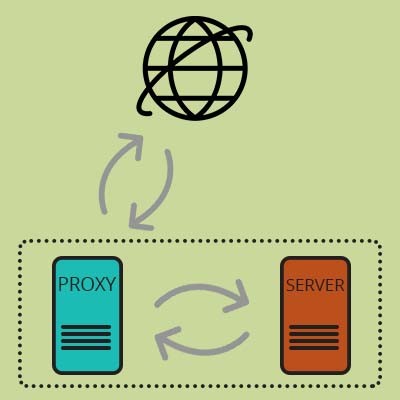Many companies have been in business for so long that they still utilize legacy applications for specific purposes within their computing infrastructure. There simply might not be a better option at the time, so they continue to rely on software that is, quite frankly, showing its age, including the server software that runs their business. Virtual machines offer these organizations the opportunity to still leverage these applications without the inherent risk that comes from using unsupported software.
EZ MSP Blog
Regardless of their size, businesses need access to some considerable amounts of data nowadays. This means that even small businesses have situations to consider that not only carries data considerations, but operational considerations. Considering many businesses have shifted to a remote workforce (or some variant of it), it stands to reason that an organization’s hardware investments have to be more strategic than ever before.
Small Businesses don’t always have the computing or financial resources--or the need--to purchase a server. Lots of small companies will have a few workstations connected together through a wired or wireless Local Area Network (LAN), but when your business gets to a point where it needs more effective means of collaboration, running that LAN through a server can produce quite a few benefits. Today, we will look at why a server-based LAN is an improvement and what your company’s server options are.
Your servers are some of the most important resources your business has, and they should last for many years. After a few years, however, they may begin to struggle to handle the workloads they once did; and, they often fail leaving a whole business in a lurch. To avoid this scenario, knowing the signs of a failing server can come in extraordinarily handy. Today we will go through three ways to ascertain if your server needs to replaced.
If you’re like most small businesses, chances are that you have one or two servers in your office that are dedicated to storing and distributing data on your in-house network. Without these machines, you would be in a rough spot. Users wouldn’t be able to access data and your operations would suffer. But what if we told you that there is an easier way to manage data and increase user accessibility that doesn’t include managing server hardware?
Every business from any industry probably has servers that hold important and sensitive data. However, not all organizations have the assets and skills necessary to manage and maintain these complex pieces of hardware. In particular, small businesses struggle with this aspect of running an in-house server, but there’s another option--an outsourced server hosting service from a third-party provider.
When a business finds new software solutions that can effectively replace their older, less efficient systems, applications can often go unused for extended periods of time. However, these unnecessary apps can waste time and money for your business, which can add up quickly. In fact, as much as 38 percent of enterprise applications are wasting away on organizations’ networks.
 Which database management system is running on your company’s server units? For end users, it’s not something that they put a whole lot of thought into. However, if you completely overlook your Microsoft SQL Server, you may end up running an expired version that puts your data at risk. Case in point, SQL Server 2005, which Microsoft recently ended support for.
Which database management system is running on your company’s server units? For end users, it’s not something that they put a whole lot of thought into. However, if you completely overlook your Microsoft SQL Server, you may end up running an expired version that puts your data at risk. Case in point, SQL Server 2005, which Microsoft recently ended support for.
 If you’re the owner of a small or medium-sized business, mark your calendars for July 14th. This is when Microsoft will stop supporting the 12-year-old server operating system, Windows Server 2003. Any business that is still running this ancient OS needs to upgrade to a more recent one before the end-of-support date arrives.
If you’re the owner of a small or medium-sized business, mark your calendars for July 14th. This is when Microsoft will stop supporting the 12-year-old server operating system, Windows Server 2003. Any business that is still running this ancient OS needs to upgrade to a more recent one before the end-of-support date arrives.
 Most IT administrators see virtualization as a means of increasing efficiency, and they’re not wrong. Virtualization of your hardware is a great way of decreasing operating costs and improving accessibility to mission-critical applications and information. However, network virtualization has the potential to increase the security of your business’s data, too.
Most IT administrators see virtualization as a means of increasing efficiency, and they’re not wrong. Virtualization of your hardware is a great way of decreasing operating costs and improving accessibility to mission-critical applications and information. However, network virtualization has the potential to increase the security of your business’s data, too.
 During the broadcast of Super Bowl XLIX, Coca-Cola premiered a bold new commercial meant to inspire viewers, make the world (wide web) a happier place, and of course, sell Coca-Cola. To be sure, it was a monumental marketing effort, but for those of us in IT, we find it cringeworthy and must object to the commercial’s content.
During the broadcast of Super Bowl XLIX, Coca-Cola premiered a bold new commercial meant to inspire viewers, make the world (wide web) a happier place, and of course, sell Coca-Cola. To be sure, it was a monumental marketing effort, but for those of us in IT, we find it cringeworthy and must object to the commercial’s content.
 The IT landscape has changed so dramatically over the past decade that businesses need to stop and consider the latest solutions before cycling out their old IT equipment. In the past, when it came time to replace office technology, one would simply run down a standard list of IT equipment. Now, much of this standard equipment is no longer necessary.
The IT landscape has changed so dramatically over the past decade that businesses need to stop and consider the latest solutions before cycling out their old IT equipment. In the past, when it came time to replace office technology, one would simply run down a standard list of IT equipment. Now, much of this standard equipment is no longer necessary.
 American healthcare organizations must store and exchange patient data in ways that comply with the HIPAA law, or else face hefty fines. One mental health service in Alaska recently learned this lesson the hard way after being hit with a $150,000 fine. Is your healthcare organization’s IT infrastructure 100 percent HIPAA compliant?
American healthcare organizations must store and exchange patient data in ways that comply with the HIPAA law, or else face hefty fines. One mental health service in Alaska recently learned this lesson the hard way after being hit with a $150,000 fine. Is your healthcare organization’s IT infrastructure 100 percent HIPAA compliant?












